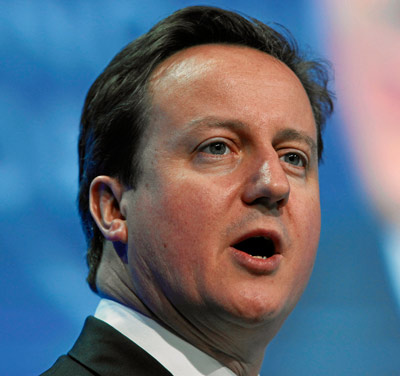Digital Privacy
22 Jul 2013 Jim Killock censorship
David Cameron is issuing bad advice to parents
 Last week, we published a list of questions about the impacts of filtering technologies, on privacy, Internet applications and user awareness of the technology. These are a baseline of the concerns. We do not expect filters to be ‘default on’ but rather ‘active choice’: we expect adults to make a choice about what they install, as the government promised following their DfE consultation last year.Cameron states that:
Last week, we published a list of questions about the impacts of filtering technologies, on privacy, Internet applications and user awareness of the technology. These are a baseline of the concerns. We do not expect filters to be ‘default on’ but rather ‘active choice’: we expect adults to make a choice about what they install, as the government promised following their DfE consultation last year.Cameron states that:
“By the end of this year, when someone sets up a new broadband account the settings to install family-friendly filters will be automatically selected. If you just click ‘next’ or ‘enter’, then the filters are automatically on.
We hope he is inaccurate. Why wouldn’t the set up require you make make an ‘active’ decision, yes or no, as previously agreed? Anything less would mean parents not engaging with the technology. It would mean accepting that the collatoral damage from filtering would apply to many people entirely pointlessly. This won’t just be pornography: it will be likely to include alcohol, gambling, web forums, and supposedly extreme political views.
However, today’s comments from Cameron also constitute misleading and dangerous advice to parents. He said:
“in a really big step forward, all the ISPs have rewired their technology so that once your filters are installed, they will cover any device connected to your home internet account. No more hassle of downloading filters for every device, just one-click protection. One click to protect your whole home and keep your children safe.
“Once those filters are installed, it should not be the case that technically literate children can just flick the filters off at the click of a mouse without anyone knowing. So we have agreed with industry that those filters can only be changed by the account holder, who has to be an adult. So an adult has to be engaged in the decisions.”
This places too much faith in technical tools that have historically proved flawed in achieving their goals.
Teenagers are usually sexually curious, and the forbidden has its own cachet. This may motivate them to try to bypass filters. It is poor advice to suggest that they will not succeed.
The filtering being suggested is only likely to work for those not actively looking for adult content, and even then no filter is perfect.
For instance devices, left unchecked, could be used to bypass filtering with extreme ease. Filtering can often be bypassed by anyone with an admin password, by using a VPN or proxy. This may sound technical, but is trivial. Many children learn how to do this to access Facebook at school.
Additionally, many network filters will only be applied to content sent “in the clear” and not encrypted content. In this circumstance, if available, SSL can be used to trivially bypass filtering – anyone capable of adding an “s” into a URL can do this. (As a consequence, pornographers may move to SSL if a large part of their adult market is enduced into a filtered Internet.)
Thus Cameron’s advice is just plain bad and misleading. Children will not necessarily be any less likely to be able to access whatever they like as the result of network filters, even if they are deterred. That may be a reasonable objective – but it is wrong to suggest that a magic bullet has solved the problem he talks about.
But that is symptomatic of the policy conundrum he has placed himself into, by pandering to a demand from the Daily Mail that ‘porn must be blocked’ and only accessible through an ‘opt in’.
Education and parents talking to their children remain the only way for children to be helped. Cameron today should have been heavily caveating his claims, and by failing to do so, many parents will think the technologies ISPs are about to provide do a much better job than they will.
Update
We’ve launched a petition calling for David Cameron to drop his plans for default Internet filtering. Sign the petition here: https://www.openrightsgroup.org/campaigns/cameron-stop-sleepwalking
Read more about the Check if your website is being blocked by filters campaign
